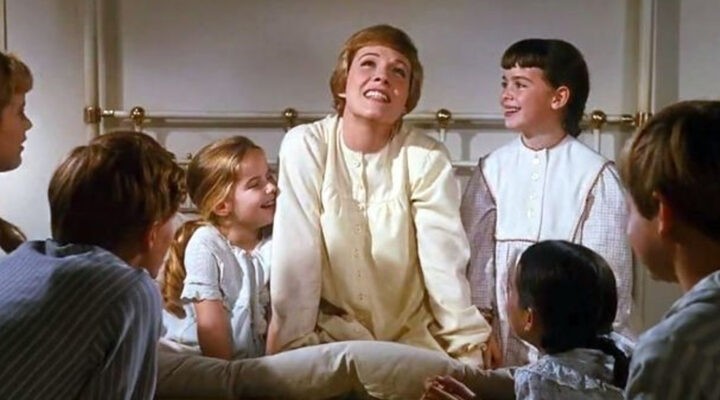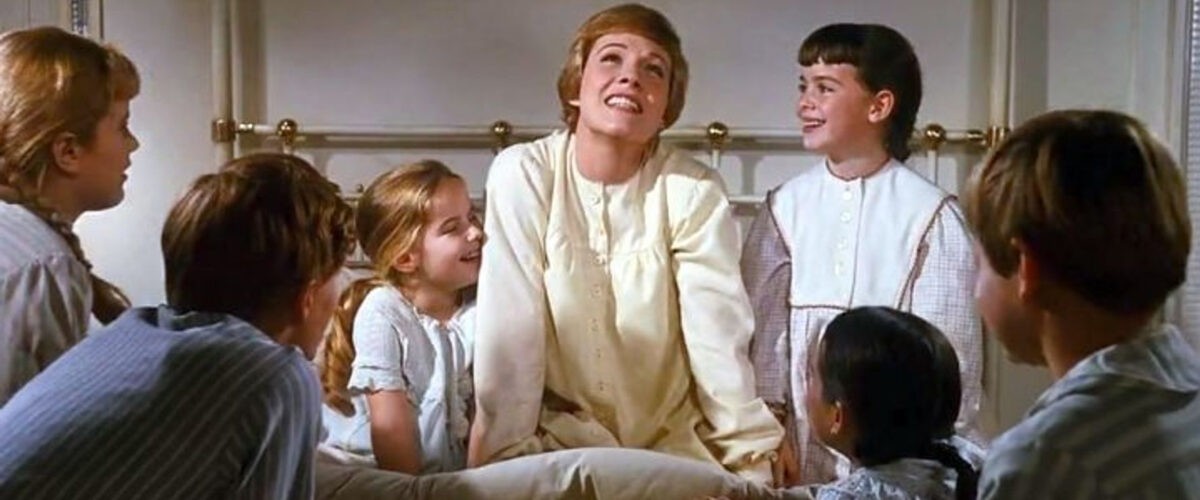Last year, when Mark asked me to write a column about “some of my favorite things” in BNG, I had to do a lot of remembering (something that gets harder with each passing year) and research to choose between the myriad of incredible pieces we ran in 2021. It was hard.
So I decided this year, just in case I was asked again, I would start a list to keep track of my favorites. I began in January, and while it has provided a great place to start, it also has provided a huge quandary. The list is really long.
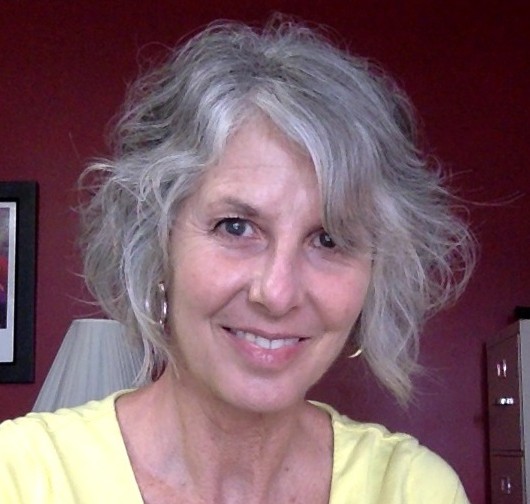
Lindsay Bergstrom
I loved so many of the opinion pieces we ran this year. A variety of voices and perspectives that challenged and inspired made the list grow with each day. So it is with great humility that I share a few of my favorites from 2022 with you.
First, “The Limits of My Right to be Unlimited,” by Arville Earl. He so astutely points out, “At some point, in the process of living among other human beings, we must face the inevitable tension of the priority of our rights (my rights in contrast to your rights) and what we will do to determine how the matter will be settled.” A statement so simple and true, and yet that concept seems to elude many today.
Those people believe their right to own and carry guns anywhere they like, say anything they like even if it causes physical harm, do anything they like if they think if it will score political points, or to impose their brand of Christianity upon a whole country. But does their right to carry a gun override the right of others not to be shot at school or church or the grocery store? Does their right to say anything they like override the right of others not to be attacked by someone who listens to those words and is inspired to put action to them? Or does their right to practice their brand of Christianity override the right of others not to be Christian or have their right to bodily autonomy taken away? I don’t believe so.
And neither does Earl: “As long as we live among other people and hope to live peaceably in that context, some self-imposed limitations not only will be expedient but mandatory.”
And may I add, “The limits of your freedom end where mine begin.”
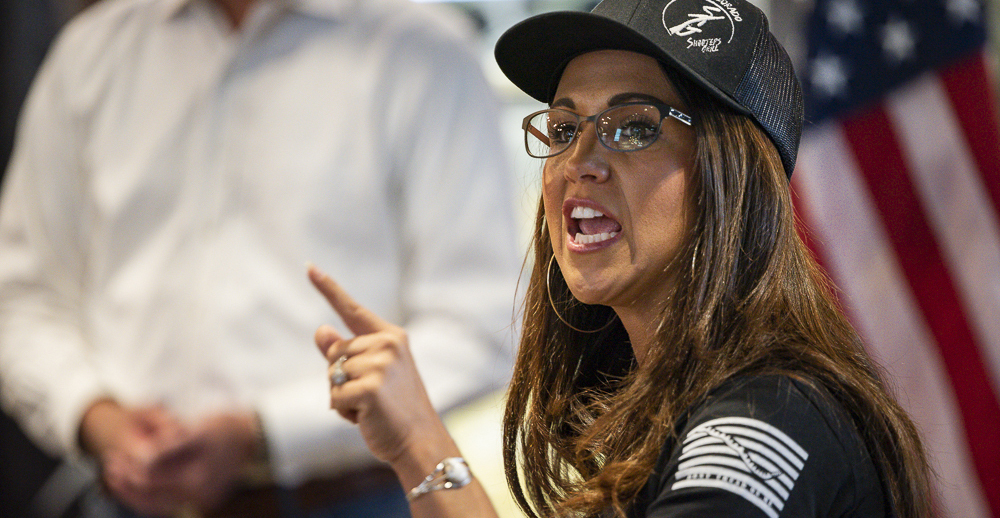
U.S. Rep. Lauren Boebert, R-Colorado, right, speaks during a 2021 Second Amendment Rally at a gun store in Midland, Texas. (Eli Hartman/Odessa American via AP, File)
Second, “No, Rep. Boebert, the church is not supposed to direct the government” by Mike Chancellor. This piece also touches on the theme of rights and is illustrative of the carelessness and ignorance with which some of our politicians speak.
Boebert, R-Colo., said: “The church is supposed to direct the government. The government is not supposed to direct the church. That is not how our founding fathers intended it.”
Really, Ms. Boebert? First, you obviously know little about history or the founding fathers if you think they were all Christian in the same ilk as you. It’s true some were Christian, but others were deists. Those who came to America in the 17th century were escaping the religious persecution so rampant in Europe at the time. To turn around and recreate a new government just like the one they were running from doesn’t make sense.
And they didn’t. In fact, it was the first thing they addressed in their new Constitution: “Congress shall make no law respecting an establishment of religion or prohibiting the free exercise thereof.” They wanted to ensure all who came here would be able to practice whatever faith they chose.
To thrust your brand of Christianity upon an entire nation made up of a diverse population sounds just like the Taliban.
Third, “Three Fatal Flaws of the Christian Faith,” by Terry Austin. He contends: “The Christian faith as we have always known it is in trouble.” According to him the reasons are threefold — it has become transactional rather than transformational, binary rather than single and focuses on doing rather than being.
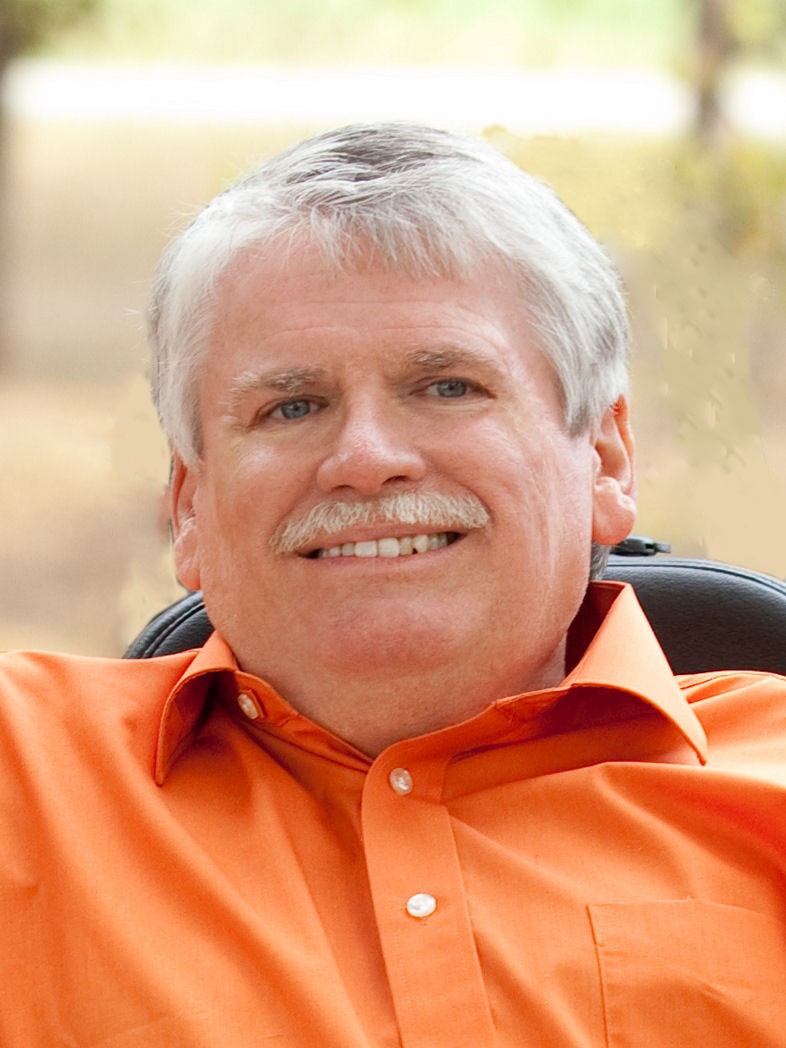
Terry Austin
“Most people operate within a religious system that is transactional,” says Austin. And “this is how it works. We must do certain things or behave a certain way for God to be pleased with us.” And conversely, if we sin, God will punish us. But God offers that once we understand God’s love, we will desire to please God without being “browbeaten” into it by rules. Knowing God’s great love for us will transform us and make us want to please God. And aren’t we more apt to obey when we aren’t forced?
The next flaw, becoming binary, he says refers to looking at everything as having only two options — right or wrong. He contends even though life is much simpler when you live in a black-and-white world, Jesus was not a binary person. “He seldom told people they were right or wrong, pointing instead to the different shades of gray in life.”
We can look around us at the diversity of our environment and the people in it and know instinctively he is right. We are not all made the same and therefore require individual grace from God and each other to be in relationship.
And finally, Austin says the focus of our faith has been more on doing rather than being, adding that we become so preoccupied with doing that we lose sight of who Jesus was. He was a person who showed up. When encountering people who were hurting and in trouble, Jesus was there with and for them.
So the question becomes not “what would Jesus do, but what would Jesus be?” If we are to be Christ followers, shouldn’t we all aspire to that too?

Fourth, “If I Had the Power to ‘Zap!’ People, I’d Be Using It A Lot Right Now,” by Susan Shaw. I laughed out loud when I proofed this piece back in June. It perfectly expressed what I had been feeling for so many months.
Shaw uses Naomi Alderman’s 2016 novel, The Power, to illustrate her frustration with events of this past summer. In the book, a force awakens in girls and women that allows them to send electrical shocks out from their hands to use in combat against men so they can dominate them.
While I’m sure she meant this figuratively (sort of), she says, “Some days, I would like to have The Power” to zap “gun manufacturers, Supreme Court justices, antivaxxers and every abuser and enabler in the Southern Baptist Convention.”
I had to admit, ashamedly, me too.
But like Shaw, I don’t want domination, I just want the power of free agency. “’Power to’ is about agency, about capacity and ability,” she says, quoting feminist Marilyn French. “There’s power to: and everyone should have that, but everyone doesn’t. … And there’s power over: and no one should have that, but people do.”
Her conclusion? “God’s community never will come by the sword; it will come by the power of love” — a harder path that is counter-intuitive. But God sent the Son into our world to show us how. It’s a path of mutual respect and unflinching and unfailing love, and that is where the power comes from.
And finally, because I couldn’t choose between them, let me offer two pieces by Mallory Challis that touched on motherhood — “How Hagar Shows Us the Meaning of Divine Motherhood” and “The Sorrows of Motherhood: Depictions of Mary’s Sadness at the Death of Christ.” Maybe because I am a mother, I found both of these especially moving and thought-provoking. But unlike me, Challis reminds us that neither of these women initially chose to become mothers.

Mallory Challis
The story of Hagar is a tragic one, as she is forced into surrogacy by Abraham and Sarah to produce a child in fulfillment of God’s covenant, only to be cast aside when Sarah later becomes pregnant. Hagar and her child had become a threat, so they were sent into the desert to die. And this is when Hagar chooses motherhood.
She does what most women would do to ensure the survival of her child — whatever it takes. “For Ishmael to survive and be blessed by God in his future, Hagar returns to her abusive owner’s household,” says Challis. In a moment when she could have chosen to relinquish her pain and suffering to death in the desert, she returns to slavery so her son could live. She selflessly chooses life knowing she will suffer so that one day Ishmael may not.
And like Hagar, Mary did her best to protect and support her child. Mary didn’t choose to become pregnant either, but willingly accepts it even though it set her on a path of suffering she faced her entire life. Challis writes: “At Jesus’ conception, Mary faced social discrimination as an outcast by being pregnant before marriage. She gave birth to him in a barn with animals and dirt, forced to go through birthing pains in improper (and probably uncomfortable) conditions. Due to the scandal of his existence, she was forced to become a refugee to avoid the infanticide of her newborn son. Throughout his ministry, she had to look upon him while he was hated by those in power.”
Then, at the moment of his death, she has to summon the strength to watch him die. “The strength to hold his limp body over her lap. The strength to face social persecution from those who hated her son. The strength to live without him on the earth.” Mary’s tender love for Jesus is not only the love of a believer for her God, but also a love of faith and a love of maternity. “Jesus, despite his status as God, needed the strength and tenderness of his mother to make his sacrifice complete.”
And mothers everywhere know how Mary must have felt, to some extent. I have two sons. There isn’t much I wouldn’t do for them or to protect them. But I can hardly imagine the strength it would take for me to watch one of them die.
What divine motherhood.
Lindsay Bergstrom serves as director of operations for Baptist News Global. Among her many duties, she has proofread all 1,614 articles published by BNG thus far this year.

